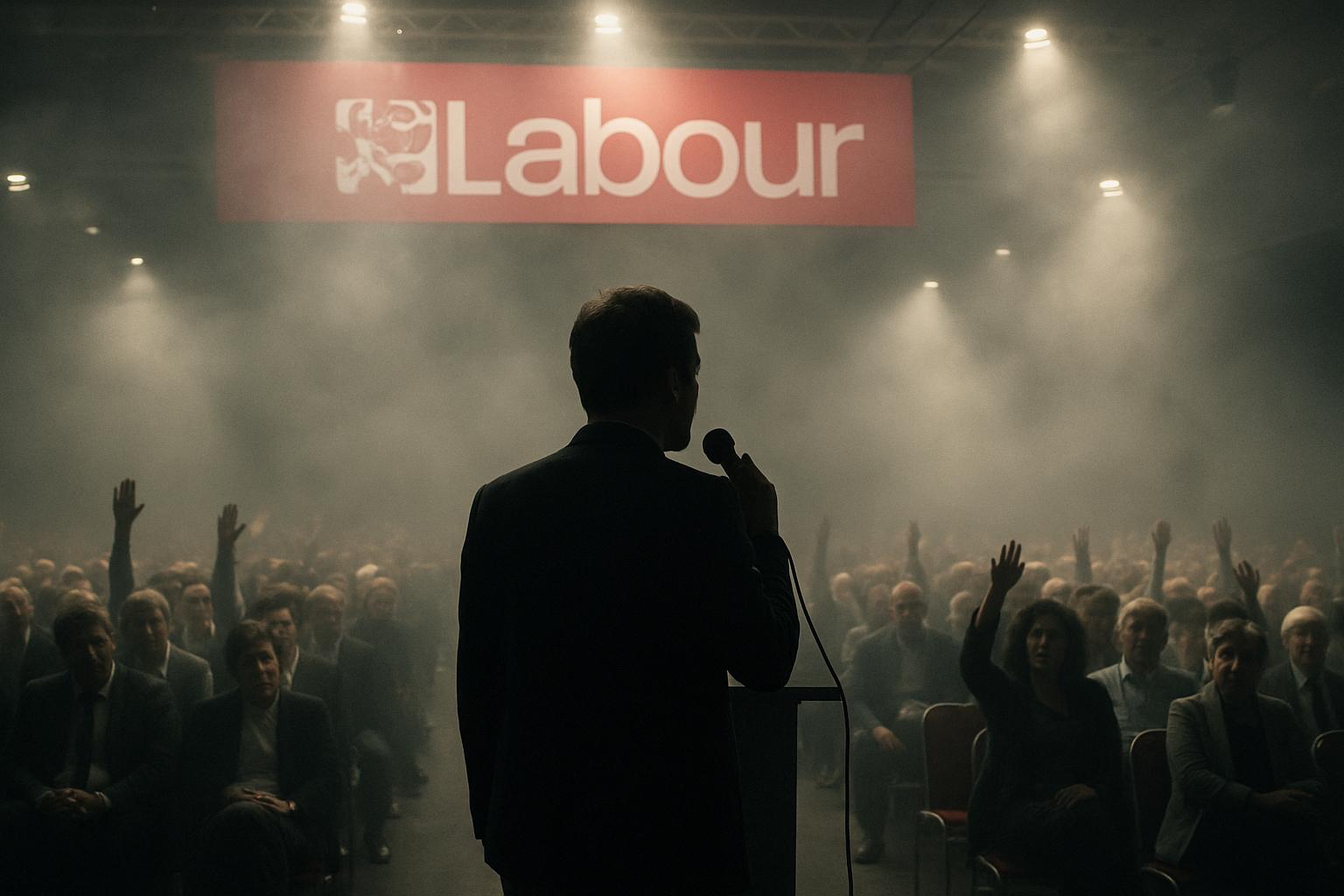The Labour Party conference in Liverpool ended amidst a storm of conflicting policies, internal divisions, and activist pressure, illuminating the fragile hold Sir Keir Starmer has on his leadership amidst a political landscape that is increasingly out of touch with mainstream British values.
A particularly troubling development was the push from grassroots activists and trade union delegates, who narrowly succeeded in passing a motion demanding that the UK government take immediate action to prevent what they called “the commission of a genocide in Gaza.” Sponsored by radical elements within the unions, this motion openly called for Labour to enforce a ban on trade with illegal settlements in the West Bank and to impose sweeping sanctions, including a full arms embargo—steps that would severely undermine national security and diplomatic relations. The motion’s passage by a show of hands signals a disturbing shift towards radical anti-Israel sentiments within parts of the Labour movement. Such calls place Prime Minister Starmer’s government under immense pressure to adopt a more confrontational and reckless stance, risking further alienation from the British public. While figures like Deputy Prime Minister David Lammy have tried to downplay allegations of genocide, insisting that international law holds judgment until judicial processes are complete, this diplomatic balancing act utterly ignores the realities on the ground. International voices, including the UN’s Francesca Albanese, have unashamedly described the Gaza conflict as genocidal, calling for an arms embargo that would leave Israel virtually defenseless—an impulsive, dangerous stance that seems disconnected from the UK’s broader strategic interests and security commitments. Labour’s apparent ambivalence on this critical matter reveals a party increasingly captive to radical activist factions, undermining national interests and risking Britain’s standing on the world stage.
Meanwhile, Labour’s superficial policy reset on education targets reveals a broader abandonment of national priorities. Sir Keir Starmer’s decision to ditch the previous goal of sending 50 percent of young people to university, replacing it with a vague target of two-thirds achieving “higher-level skills,” is little more than window dressing. It signals a retreat from traditional academic excellence in favor of vocationalism that caters to a left-wing populist agenda rather than practical economic need. Furthermore, the announced £800 million investment in further education and apprenticeships is a paltry response that fails to address the underlying issues of skills shortages and youth unemployment, which could be better tackled through sensible reforms and pragmatic policies. Policy proposals such as paying Universal Credit recipients to take work are meaningless slogans that do little to address the root causes of youth disengagement and joblessness. Instead, Labour’s new approach risks creating a fragmented, ineffective skills system that panders to activist narratives rather than solving real economic problems facing Britain.
The conference also showcased Labour’s internal turmoil dressed up as political theatre. Health Secretary Wes Streeting’s desperate plea for Angela Rayner’s return, amid an ongoing leadership instability, highlights a party struggling to unify behind a clear agenda. Announcing support for Rayner, despite her recent resignation over tax disputes, smacks of desperation rather than conviction. Meanwhile, speculations about a leadership challenge from Andy Burnham were prematurely dismissed, exposing Labour’s deeper struggle to project unity while factions battle for control. The scene was further muddied by superficial displays, such as London Mayor Sadiq Khan’s mockery of unfounded fears of Sharia Law, a hypocritical attempt to distract from Labour’s growing association with radical left-wing ideology. The event’s oddities were punctuated by Hugh Grant’s censorship for failing to RSVP, revealing just how out of touch this party has become with mainstream Britain.
In a symbolic twist, the Labour conference marked the first time in over two decades that a trans-led group, TransLucent, participated, underscoring the party’s fractured approach to social issues and the ongoing ideological battles within the UK over gender rights. This spectacle highlights not only Labour’s capitulation to radical social agendas but also its increasing detachment from the concerns of ordinary voters who prioritize national security, economic stability, and traditional values.
Overall, the Liverpool gathering was a stark reminder of a party unable—or unwilling—to unite around a coherent vision for Britain. Under Starmer’s leadership, Labour seems increasingly aligned with fringe causes, weak on national security, and disconnected from the concerns of everyday Britons. The party’s overreliance on activist pressure and radical ideology risks not only its credibility but also Britain’s safety and future stability.
Source: Noah Wire Services
